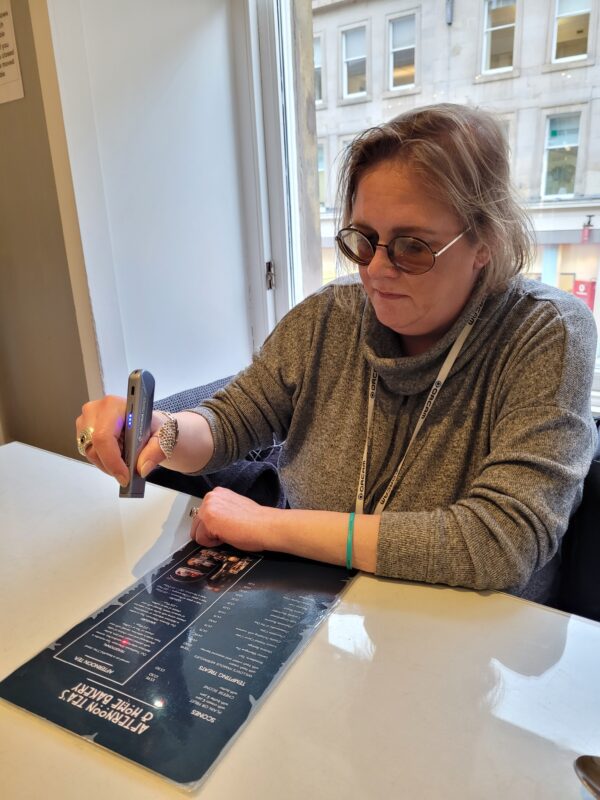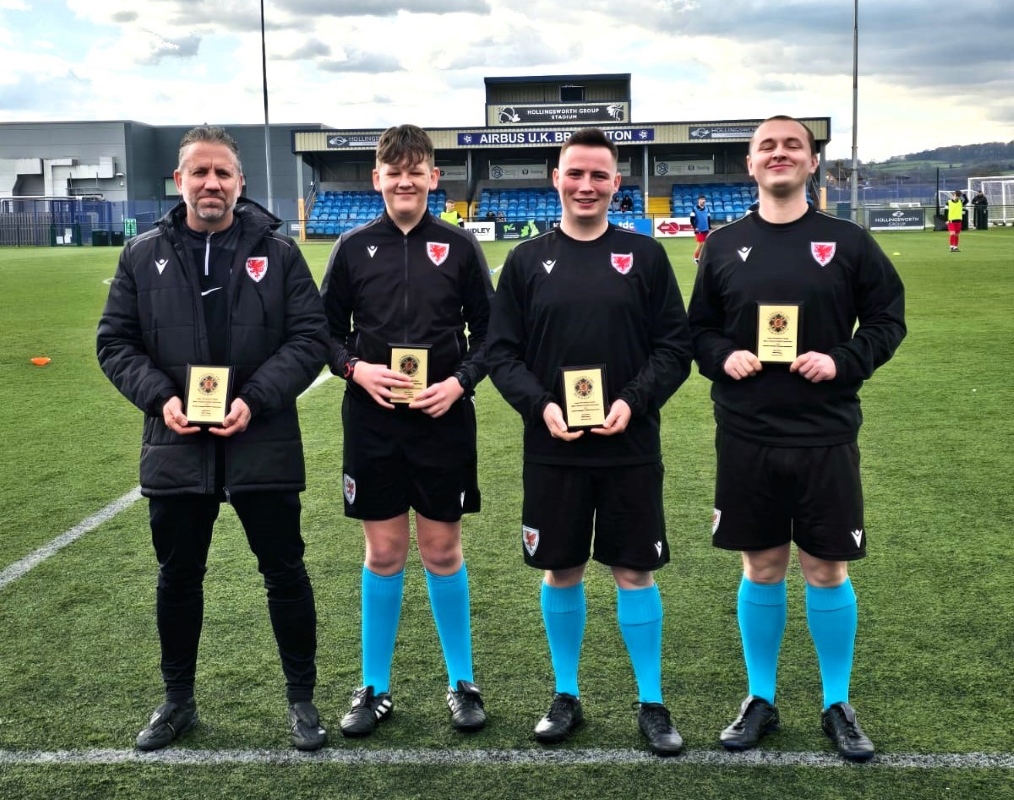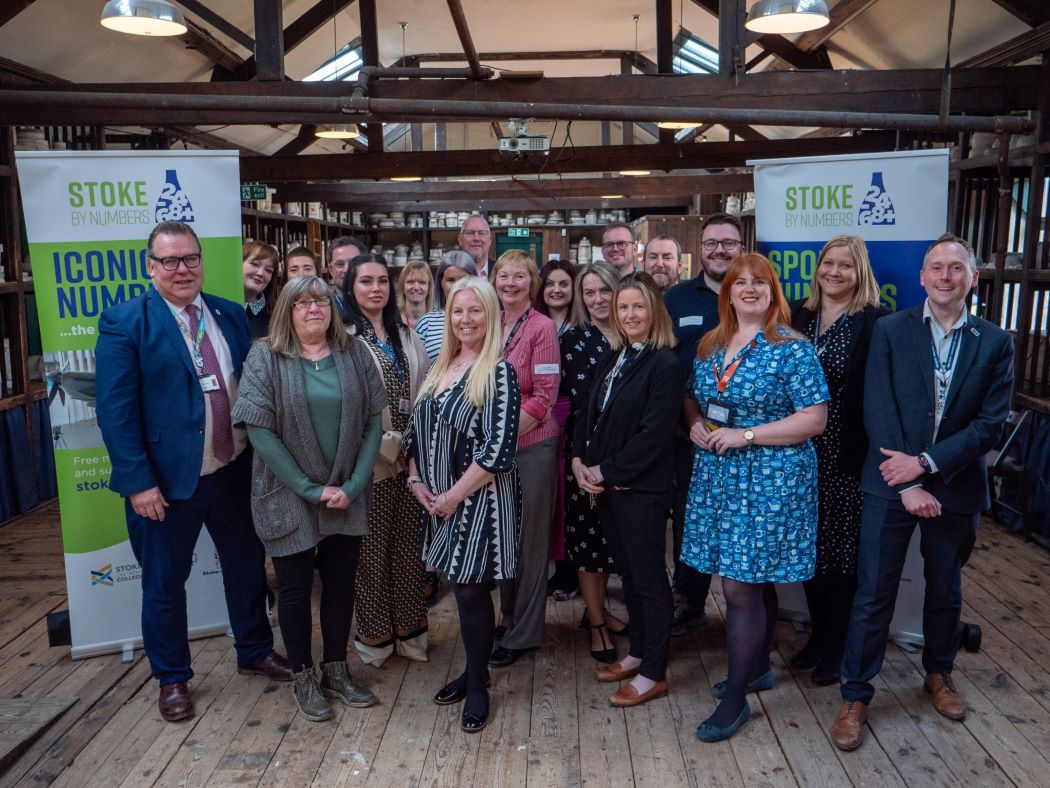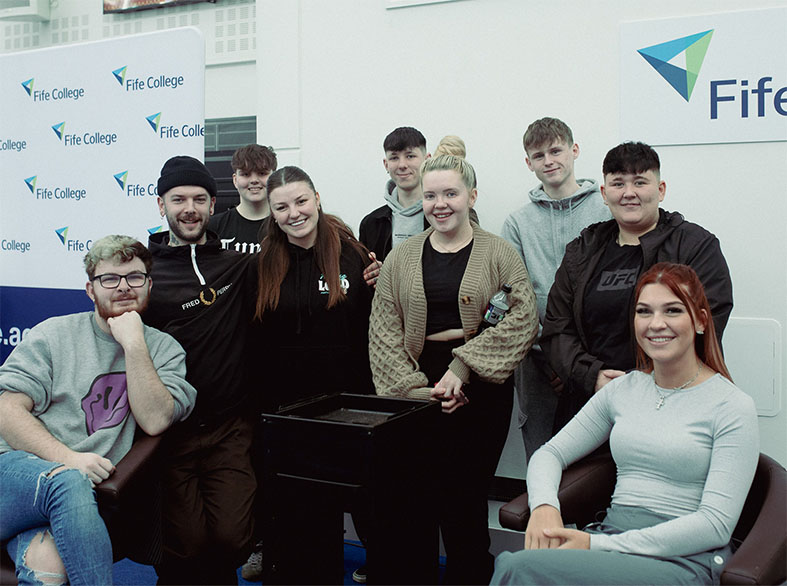Understanding the student journey to DSA funding

Suzy Taylor, Open University student and helpline advisor at Dyslexia Scotland, discusses navigating Disability Student Allowance (DSA) funding to secure access to vital assistive technology that helps her overcome barriers to living with dyslexia
At the age of four I contracted meningitis and experienced swelling on the brain. The trauma impacted my ability to read and write and following a formal assessment, I was identified as having dyslexia and dyspraxia.
Despite my dyslexia and dyspraxia identification, I’ve never given up and continue to pursue my passions, one of which is a Criminal Psychology degree at the Open University. As dyslexia works differently for everyone, understanding my own dyslexia inspired me to become a helpline advisor and events volunteer with Dyslexia Scotland, aiding with support to understanding the barriers of having a learning disability. I deliver valuable insights and guidance to individuals, from young children in education all the way to adults in the office.
Early identification for long term support
One Government initiative that has helped me is the Disabled Students’ Allowance (DSA), a grant scheme available to higher education students that covers the study-related costs. If you are an undergraduate or postgraduate student like myself and have a disability that affects your ability to study, you are eligible for this funding. Proof of your learning difficulty or condition must be submitted to your funding body before the funding can be claimed. The funding will give you access to a wide range of assistive technology to improve your learning experience and aid barriers of learning disabilities. But before I discuss my journey through this, I want to talk about diagnosis.
Diagnosing for dyslexia in schools is a key long-term step to success. Enlisting an educational psychologist to assess children from a young age is highly recommended and will enable more support for the child in the long term. Although schools may have the facilities in place to support dyslexia, the process of choosing an educational psychologist is not always the first port of call.
Assessment and ongoing support
A common issue I face in my role for Dyslexia Scotland is that there is not enough information is available on the support available to students. So, it doesn’t come as a surprise to me that only 40 per cent of students are aware of DSA before starting their university course.
The DSA process requires you to complete an application form and submit this to your funding body. If you are unsure of any processes, you can phone either the helpline at the British Dyslexia Association or Dyslexia Scotland, the friendly staff will signpost you to the correct support. Following this, a needs assessment needs to be provided, if you do not have this ask the learning support department and student association for information. If they are unsure again phone one of the above helplines. The needs assessment will identify key areas of concern and the necessary level of technology and support needed.
It’s important that students are supported to understand the difficulties they face. The assessment report, which can be up to 10 pages, analyses your challenges such as working memory and reading speed. However, if you have dyslexia, the report can be extremely difficult to understand and a challenge to process the findings.
This is why Dyslexia Scotland has set up a post-assessment pack to break down the findings and list the adjustments that can be put in place to improve the learning experience. If enquiring about visual stress it is vital that you ask an ophthalmologist for further details, as this is a controversial subject and not every optician provides the correct services. I have a tinted coloured glasses, again visual stress affects everyone differently, as it is about how your eyes work.
Technology for more productive learning
It can take up to 14 weeks to get your DSA support in place which can cause further issues for students. As my degree is being completed through the Open University, I study from home. This makes it a challenge to organise DSA as there can often be delays due to the remote nature.
When the DSA application is complete, a package of assistive technology and equipment is issued to students. I received various devices and technology to help with my studies including a reading pen, laptop, printer, and other software, as well as training through Concept Northern on how to use the assistive technology provided. But there is one piece of technology that is a true stand out – the OrCam Learn DSA, a fully DSA approved handheld digital reader developed specifically for those with reading and writing challenges – that captures entire pages of text and reads it aloud from any surface or screen.
I find proofreading hard and I often feel exhausted. This is a huge part of my degree, so being able to use the OrCam Learn DSA to relay the text back to me makes a huge difference and allows me to concentrate for longer periods of time. And, once the information is captured the OrCam Learn DSA allows me to replay the information back as many times as I want. At my choice of speed, and without having to rescan the document. For me, this is a transformative feature that significantly helps me with my academic studies and enables me to save time whilst working.
Having access to technology like the OrCam Learn DSA through the DSA has really improved my grades and has allowed me to read more efficiently, saving valuable time while increasing productivity. I’ve just completed the second year of my degree. While it hasn’t always been easy, I’ve made a 33 per cent improvement to my end of year results, compared to my first year. That’s thanks to the help from assistive technology like OrCam Learn DSA.
Before I embarked on my degree journey at the Open University, I was concerned that my dyslexia and dyspraxia would prevent me from achieving my learning potential. Having vital support from funding schemes such as the DSA, I’ve been able to access life-changing assistive technology to help alleviate challenges associated with reading. Although the journey to DSA funding can be challenging at times, I would whole heartedly recommend this to any of my fellow students out there who are in a similar position to myself. Using this funding, students can make their ambitions become a reality thanks to the power of this transformative technology.












Responses